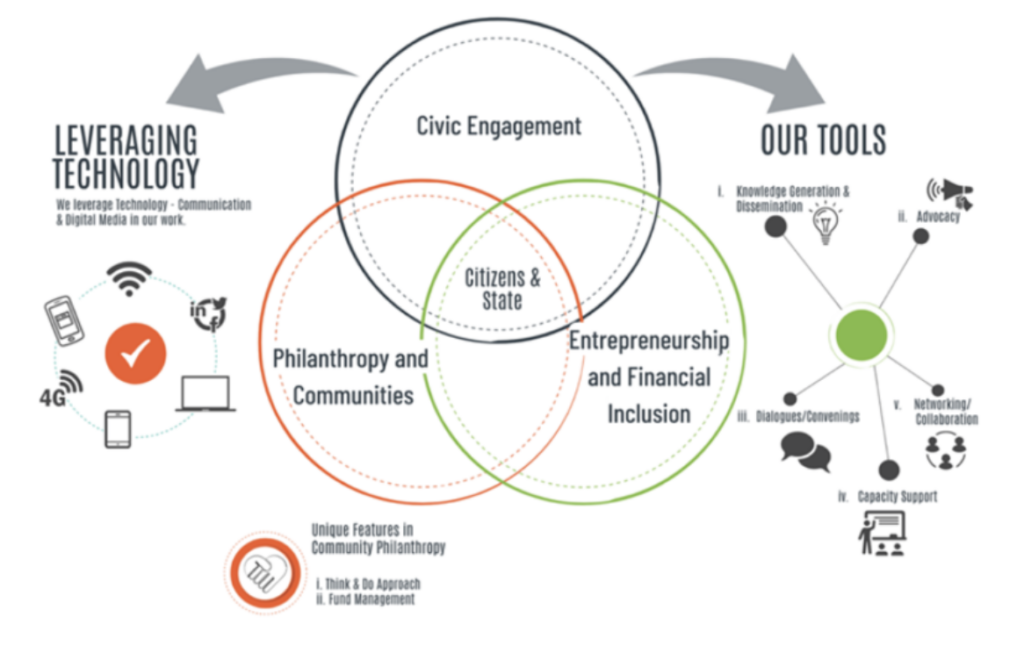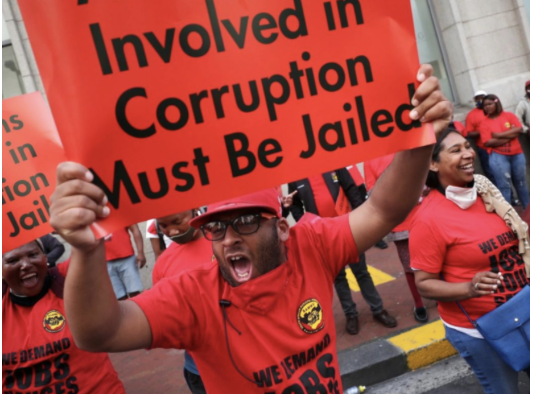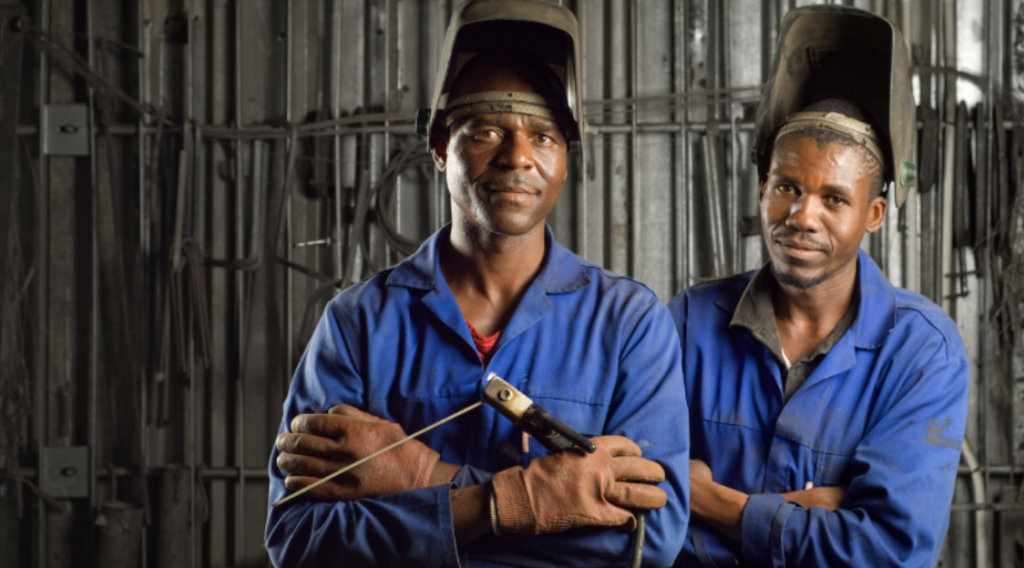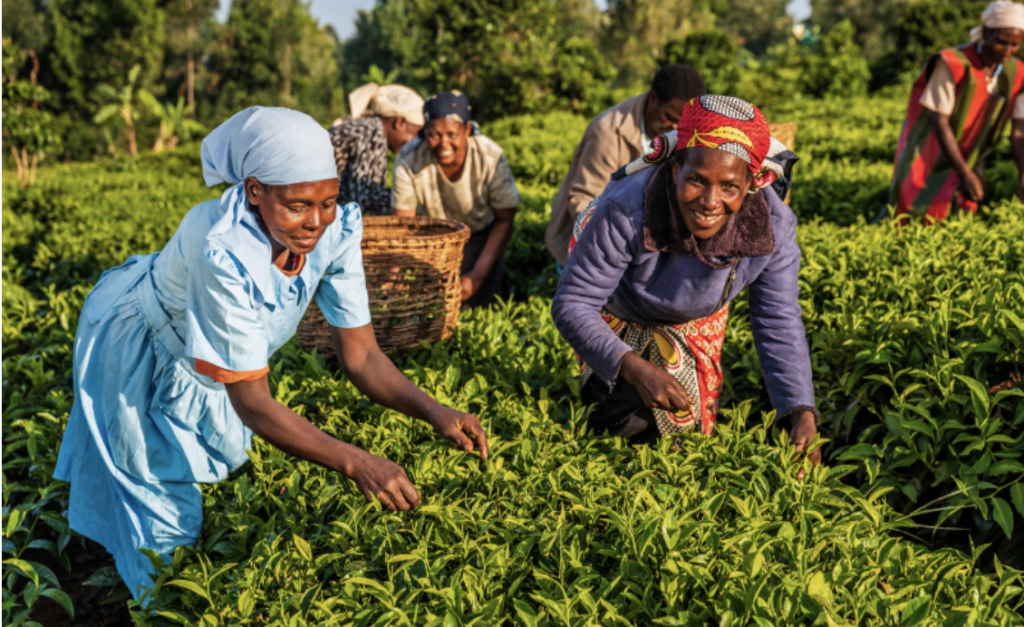Originally posted in MailChimp: SIVIO Connect April 2023 (mailchi.mp)
Welcome
Welcome to the 2nd edition of our Newsletter. It has been a busy but exciting start to 2023 and we look forward to keeping you updated on what’s going to be happening in this year through the newsletter. In this issue – we get to formally introduce the work that we do and the background story. Our focus is on re-asserting the everyday citizens at the centre of processes that have to do with framing development and shaping democracy as part of the quest to achieve a utopia we are calling an ‘inclusive society’. Our journey formally started in 2018 but the founding team comprised of our Executive Director and other Trustees had been previously engaged in various efforts that focus on ensuring an inclusive society. From the onset, we have carried out this work focused on three interrelated issues- democracy, development, and citizen participation. We believe that democracy and development are interrelated and interdependent. Furthermore, we believe that democracy and development cannot be concepts imposed from above, they must be nurtured and sustained through citizen-led participation. The work of democracy and development cannot be delegated to others, it is the work of all citizens in their different roles and capacities.
Our Approach
Our work is divided into 3 thematic centres of work: namely Civic Engagement, Philanthropy and Communities, Entrepreneurship and Financial Inclusion.

The centres focus on enhancing accountability and transparency in African political systems, promoting equitable, responsive and acceptable paradigms of development across Africa, dependency on foreign aid and improving citizen participation and engagement with officeholders in public processes. The centres carry out their work through cross cutting tools which are knowledge generation, training, leveraging technology, dialogues and support to mobilise resources. We have produced various knowledge products across all centres, our short courses on civic engagement, entrepreneurship and philanthropy are available online.
Centre for Civic Engagement

At the core of what we do as SIVIO Institute is enhancing citizens’ engagement in public processes. Our approach takes an election plus position, we believe that ‘free and fair elections are a necessary but not sufficient condition for democracy.Over the years democratic and development practices in Africa and elsewhere have reduced citizens to mere voters (with 5 minutes of power at the voting booth) and recipients of services from the government and development ‘experts’. And what we see is that this approach is clearly not working – the continent continues to be characterised by many socioeconomic and political challenges. We realise that there is a need to broaden democracy beyond elections and align with the Tocquevillian tradition which views democracy as the work of citizens in solving public problems. It is in this regard that we have sought to measure and compare the extent to which citizens are engaged in public processes. Our African Citizenship Index seeks to animate conversations around what citizens do with each other and how that contributes to the public good is part of this crucial re-imagining of the democratic process. Measuring democracy from a public problem-solving perspective contributes towards a realization not only of the challenges of elections but of other public problems such as the shrinking public space, and the lack of adequate investments that need to be done to revitalize public processes.We have written a book on Rethinking Citizens and Democracy and developed and deployed an online course on Civic Engagement.
Our African Agora platform provides an important comparison on ongoing government led processes that seek to inhibit associational life and the work of formal civil society. Our findings to date demonstrate a region-wide problem of governments putting in place measures to restrict the agora (public space). We hold the belief that an open civic space is important for citizens to not only participate in public processes but also to engage with each other.Finally, we have since our establishment been fascinated by bringing technology capabilities into the civic space. Ensuring government accountability, especially in the conversion of electoral promises into policies has up to now been weakly organized.Our leveraging and creating of online open-access platforms such as www.zimcitizenswatch.org and recently www.africancitizenswatch.org have created new possibilities for improving prospects for evidence-based advocacy. We are passionate about enhancing advocacy skills and to this end, we have established and hosted a number of policy advocacy labs in Zambia and Zimbabwe.
Centre for Entrepreneurship and Financial Inclusion

African economies are changing. The 4th industrial revolution is creating a greater demand for new technologies and new knowledge to manage that technology. Africa although part of the revolution, is lagging. Many African countries are yet to fully experience an agrarian revolution let alone an industrial one. So, we stand at a time when we must advance and do so quickly. One of the ways this can happen is by creating market systems that meet the needs of the many Africans at the bottom of the wealth pyramid with innovative solutions that will influence economic transformation across countries and regions simultaneously.In the Centre for Entrepreneurship and Financial Inclusion, we have observed that one of the quickest ways to do this is through supporting the efforts of those tirelessly working on the margins in their micro, small and medium enterprises (MSMEs). At the beginning of 2020, we identified the need for an intervention which targets the development of small enterprises leading to the development of the NextGen Introduction to Principles of Entrepreneurship Course where we train intenders and start-up founders on the key aspects of business formation and business development in an African landscape. Our goal is to teach MSMEs to scale their operations whilst solving some of Africa’s most basic but pressing problems. We also support best practices in business establishment through the Entrepreneurship LabFurthermore, Africa is currently grappling with the challenge of inequality and inadequate development models. There are glaring differences between the rich and the poor, young and old, and women and men. Our work on financial inclusion is informed by the UN’s SDGs development mantra; ‘leave no one behind’. We realize that the current optimism around Africa’s take-off if not adequately tampered with, may lead to highly unequal development outcomes. Our focus on financial inclusion of MSMEs is part of a process to determine the capacity of policy and related programs in addressing the real challenge of leaving others behind. There has been a premature celebration of fintech capabilities without interrogating issues such as data costs, business preferences to be located in certain areas and limited incentives to work at the bottom of the pyramid.Our study on financial inclusion culminated in the development of the Financial Inclusion Index, the first of its kind developed specifically for Africa, to quantify the level of financial inclusion. This information will make it possible for decision-makers to quickly understand the implications of exclusion and which areas they must focus on for inclusion to become a reality. We are expanding our initial focus from Zimbabwe into the region in 2023.
Centre for Philanthropy and Communities

The term philanthropy has many times been associated with the rich giving to the poor or the western countries giving to developing countries, particularly Africans. There has been a shift in mindset where philanthropy is no longer just viewed as the domicile of the rich. Africa is now redefining philanthropy and owning its own narrative of giving.Our works seeks to demystify the philanthropy landscape by:Spreading knowledge of giving by wealthy and poor Africans,Nurturing giving as part of what active citizens do andCreating advocacy momentum to improve the environment for giving.Our work on communities engages in different forms of giving.We carried out a study of 24 community foundations in Zimbabwe. These entities are mostly involved in poverty alleviation, support to the girl child and healthcare provision in their communities. We have supported formalisation process of philanthropy focused initiatives through the Philanthropy Lab. The Lab provides vital materials for the establishment and running of philanthropy focused organisations. Through the Lab materials, one can go the DIY (Do It Yourself) route guided by the materials. The Lab is continuously updated with compliance requirements for jurisdictions within the SADC. It helps organisations to operate legally and to adhere to the legal provisions of the state.
As part of our thrust to expand into the region, we embarked on a 10-country regional study to assess the legal frameworks for philanthropy across the SADC region. We have produced the SADC Ease of Doing Philanthropy Index which assesses the legislative operating environment for philanthropic entities. Through the index and related reports, we aim to influence policies that create an enabling environment for philanthropy to thrive for the achievement of the global goals. The centre provides a training course, the School for Sustainable Civil Society Organisations/Non-profits, to equip practitioners with skills to build resilient philanthropy organisations.
As a centre, our overall goal is to foster and nurture philanthropy by Africans for Africans. To this end, we have been developing and have launched the Africa Giving Platform to promote the sustainability of non-profits who face challenges of funding. We established this platform to enable individual givers from around the world to easily access small non-profits making a difference on the African continent and support them through small gifts.
Find out more about the www.africagiving.org platform and tell a friend about it.
Remember you can support the work that we do here, and we are happy to include you into the Friends of SIVIO group.Support SIVIO Institute
